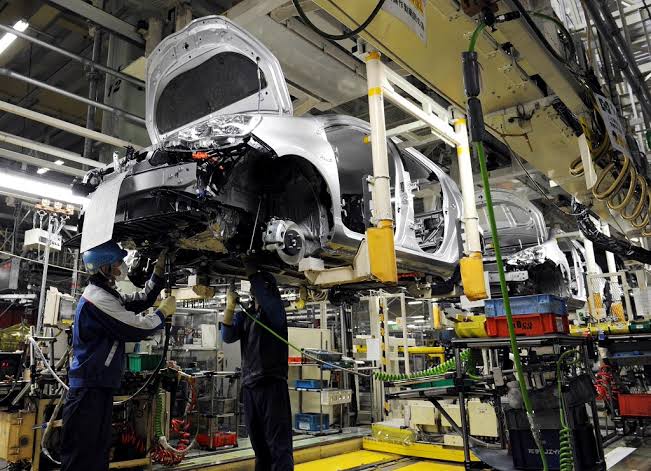Large Scale Manufacturing: 11-Month Negative Growth Baffles PIAF
LAHORE– The Pakistan Industrial and Traders Associations Front, while showing serious concern over the continued decline in the large-scale manufacturing index (LSMI), has stated that a National Industrial Growth Strategy from the government is essential with ownership at the highest level, as 7.97 percent drop in October’s LSM reflects overall economic slowdown across the industry in the ongoing fiscal year.
PIAF chairman Mian Nauman Kabir said that the government had set LSM target of 3.1 percent for the year 2019-20, which might not be achieved due to poor performance of major industries in first four months of the current fiscal year.
Quoting the figures, he said that the LSMI had shrunk by 6.48 percent in the first four months (July to October) of the current fiscal year.
It is unfortunate that the LSM, which constitutes 80 percent of manufacturing and about 11 percent of the overall GDP, had recorded negative growth for eleventh months in a row amid sluggish economic activities in the country, he lamented.
The Pakistan Bureau of Statistics (PBS) has reported that growth of big industries like food, beverages, pharmaceutical, chemical, fertilisers, leather and iron, automobiles and steel sectors had declined in first four months of the ongoing fiscal year.
Data reveals various factors that led to the slowdown including lower Public Sector Development Programme expenditures compared to last year, deceleration in the private construction activities and consumer spending on durable goods.
According to the PBS, production data of 11 items from Oil Companies Advisory Committee had registered a negative growth of 0.91 percent in July to October period of the year 2019-20.
Similarly, the LSM data, provided by the Ministry of Industries and Production for 36 items, had also shown negative growth of 3.99 percent during the period under review.
However, the data provided by the provincial Bureaus of Statistics for 65 items had recorded negative growth of 1.57 percent over the same period.
He said that the negative growth is mainly the outcome of dip in production of automobiles that went down by 36.07 percent and iron and steel products by 14.97percent. Similarly, production of coke and petroleum products had declined by 13.77 percent.
Meanwhile, production of pharmaceutical had decreased by 10.28 percent, followed by electronics, whose production declined by 8.87 percent.
Production of food, beverages and tobacco had also gone down by 8.4 percent. The data showed that production of chemicals decreased by 8.84 percent and paper and board production also down by 2.21 percent.
On a year-on-year basis, almost all vehicles in the auto sector posted decline in previous fiscal year.
PIAF chairman said that policy measures like regulatory restrictions for non-filers from purchase of vehicles and increase in interest rates have dented the demand in the automobile segment to some extent while significant depreciation of Rupee increased the cost of production, resulting in escalated prices and dampening the demand further.
In auto sector, tractor production went down by 33.67 percent, light commercial vehicles 27.69 percent, trucks 57.87 percent, jeeps and cars 43.49 percent and motorcycles 19.19 percent during the period under review.
Mian Nauman Kabir said that though energy shortage and law and order kept the economy hostage during the last many years, the government now should have a clear vision on the economic issues, which would help resolve industries’ problems at the earliest.
Besides high cost of production, he also expressed concern over undue interference of Social Security Department, EOBI and Labor Departments and pointed out that tax refund claims were being delayed unduly.
He said if the government fails to respond to private sector’s call, the economy will continue to slide ultimately resulting in closure of industry and trade.— PRESS RELEASE

